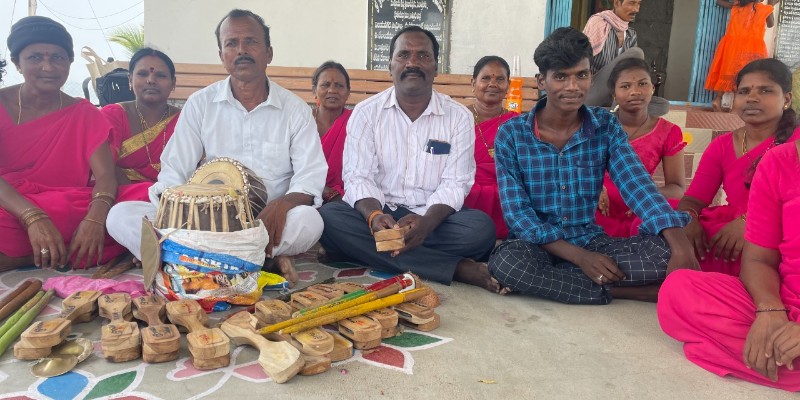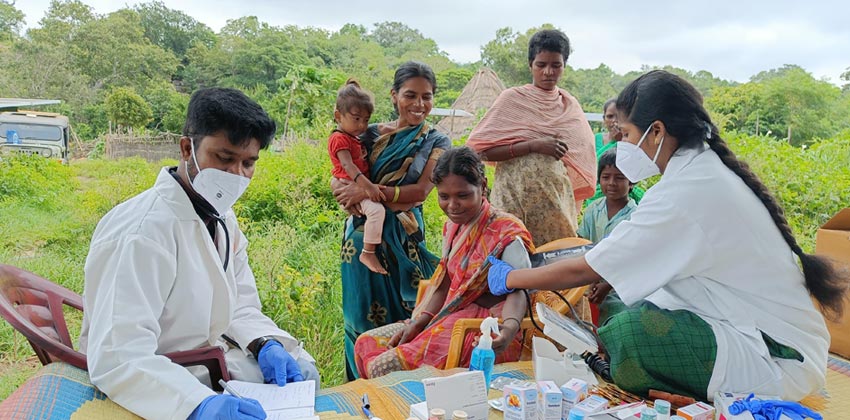Sabbu toh chetulu rudi, bale aarogyanga undalammi,
Subbaranga undalammi, Aragonda chinnadana
(Wash your hands with soap,
take care of your health and
Be well, lovely resident of Aragonda)
//
These unusual lyrics for a chekka bhajana show at a temple in Irala evoke appreciative laughter from the audience gathered around the performers. A once popular folk art form from the Rayalaseema region of Andhra Pradesh, chekka bhajanas are songs and dances performed with wooden musical instruments to narrate stories from The Ramayana.
Today in Irala, a mandal in Chittoor district, their modified versions are being used to spread the message of hygiene and sanitation, under a unique project by Apollo Foundation and Reckitt’s Dettol. Performed first for the community in a temple, it will soon be taken to 400 schools in Chittoor.
Mohandas, 45, leads this troupe from Kanipakam, in Irala. He is surrounded by 10 women wearing identical bright pink cotton saris with golden borders, who dance around him in a circle. One step forward, one step back, they move ringing the belled chekka instruments to the rising tempo of the tabla player.
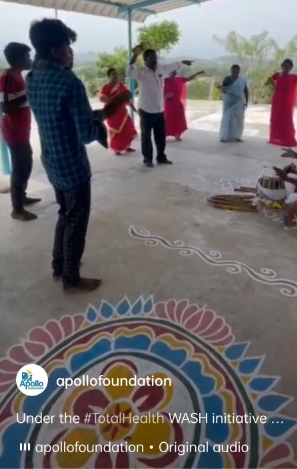
“Chekka bhajana is an ancient art form practised in our village during festivals like Vinayaka Chaturthi, Sri Rama Navami, and Krishna Jayanti. Our troupe has 20 members in total and we go from village to village — from Tirupati to Ardhagiri in Aragonda — performing these traditional songs,” says Mohandas. “I started performing professionally when I was 23, but my family has been practising this for generations.”
The art form which gets its name from the Telugu word ‘chekka’ meaning wood is a testament to the festive togetherness percussive music has traditionally brought in villages. The pair of wooden instruments, about a foot long each, have hollowed out spaces for bells on each side; clapped together, they harmonise with the tabla’s beats. Another reason why chekka bhajanas are well-liked is their light-hearted and informal lyrics. Some years, this declining art form has even been showcased on Republic Day parades in Delhi.
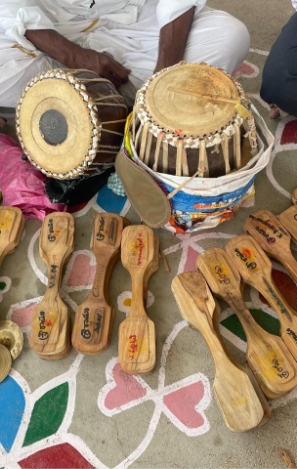
Recognizing the popularity of this art form among the villages of Chittoor district, the Reckitt team decided this would be a good medium to increase awareness about healthy hygiene habits. Mohandas has been tasked to write lyrics for 5 new chekka bhajanas. “The songs will each have themes such as hygiene practices at home, in school, during illness, to protect the environment, and so on,” says Vanishree K, project associate, Arogya Rakshak, one of Reckitt’s projects. “We have given Mohandas a few key phrases that will help him write the lyrics: washing hands with soap, drinking clean water, and so on.”
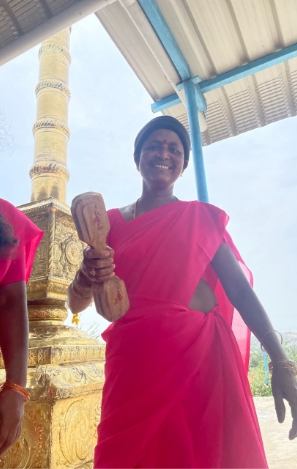
As schools reopen in the next few weeks, these modified chekka bhajanas will be performed at inter-school cultural programmes, hosted by the Arogya Rakshak team, and each of these will see up to 7 schools attending. “The Reckitt team wanted us to use our folk culture to spread awareness. We zeroed in on this art form because the colourful song and dance will be very appealing to kids,” says Vanisree. “Once these 5 songs are written, we can also use them for kolattam (a folk dance performed by women with sticks) by slightly tweaking the tune and lyrics.”
“Traditionally, chekka bhajanas are performed to narrate stories and keep the legends of the Ramayana alive among a younger generation. The songs are catchy and children retain their message. By that same logic, we hope that this medium will be a creative way to help children learn healthy habits,” says Vanisree.
